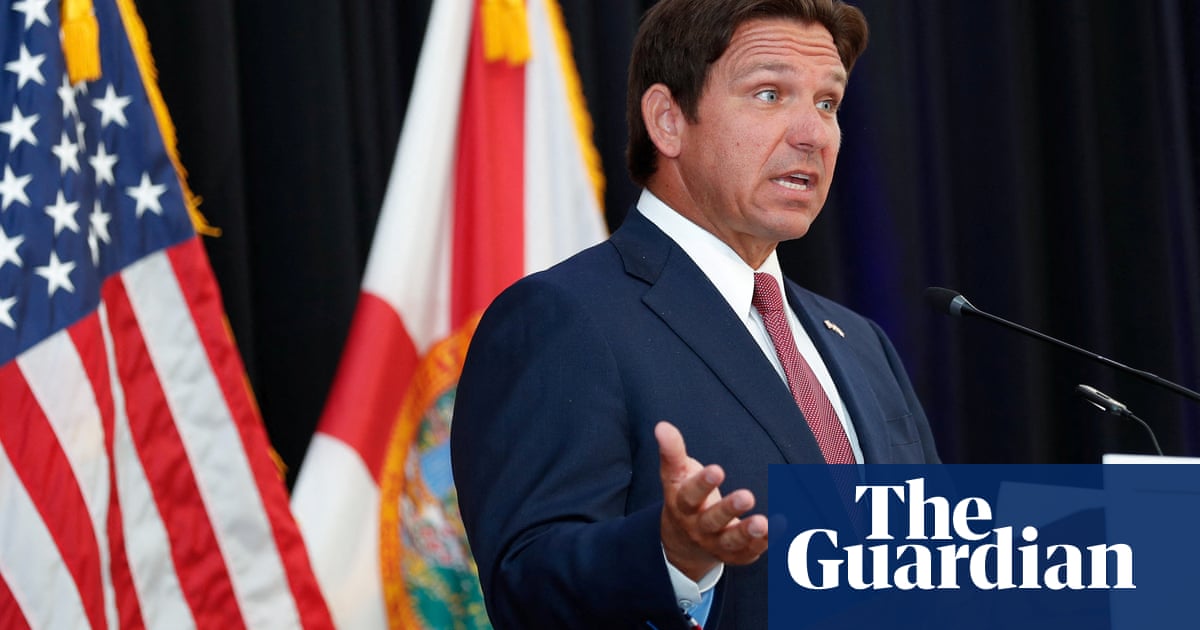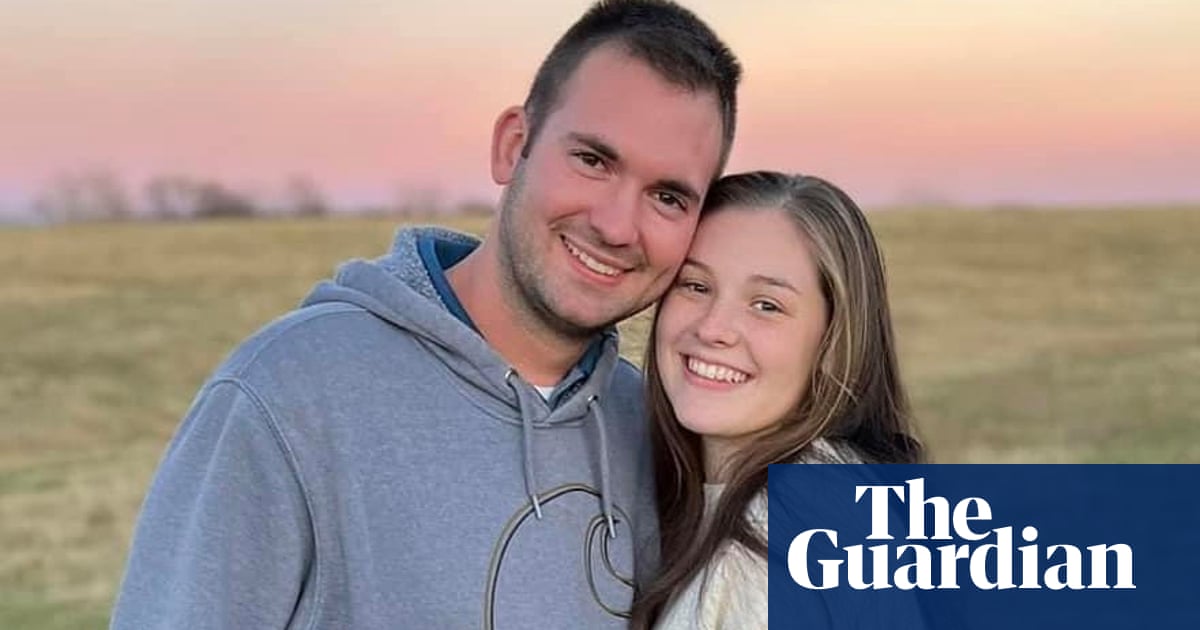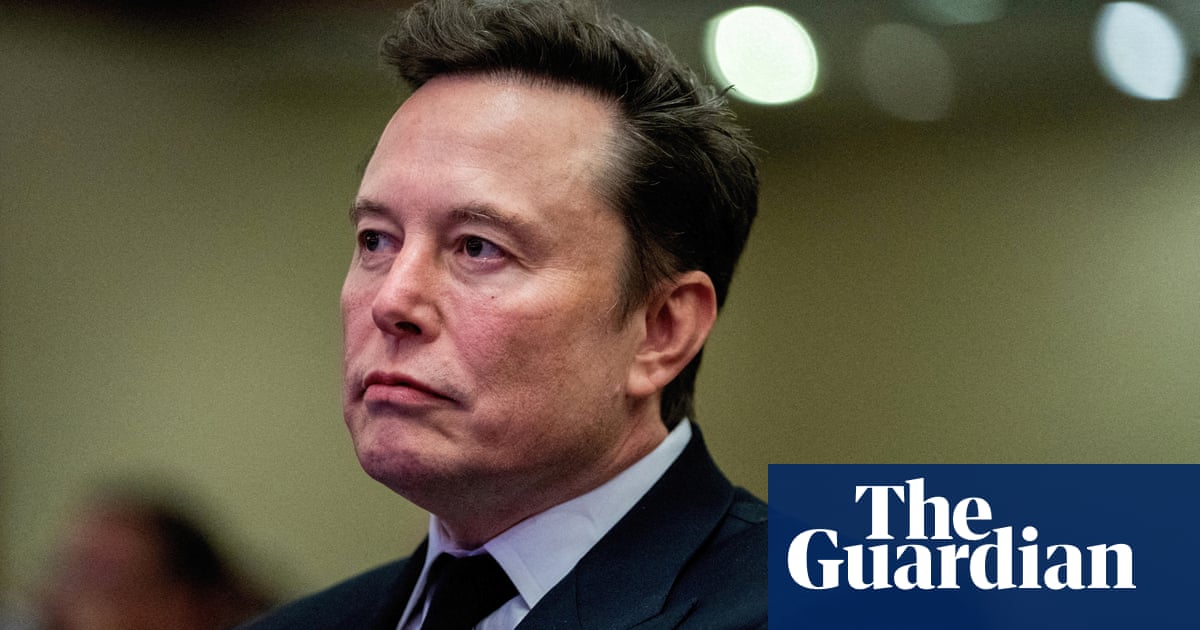Ron DeSantis stripped more than $32m in arts and culture funding from Florida’s state budget over his hatred of a popular fringe festival that he accused of being “a sexual event”, critics of the rightwing governor say.
DeSantis justified his unprecedented, wide-ranging veto of grants to almost 700 groups and organizations by saying it was “inappropriate” for $7,369 of state money to be allocated to Tampa fringe, a 10-day festival that took place earlier this month with a strong message of inclusivity, and its sister event in Orlando.
“[It’s] like a sexual festival where they’re doing all this stuff,” DeSantis said at a press conference Thursday, without elaborating.
“When I see money being spent that way, I have to be the one to stand up for taxpayers and say: ‘You know what, that is an inappropriate use of taxpayer dollars.’”
As a result, he has canceled almost the entirety of Florida’s already slim funding to the arts world, denying much-needed dollars to a diverse array of groups including youth orchestras and choirs, museums, art galleries, dance troupes, zoos, cinemas and community theaters.
Most rely on the state contribution to operate fully, or in many cases simply for their survival. So it makes little sense to any of them that what DeSantis sees as standing up for the taxpayer equates to killing performances, exhibitions and jobs.
“It’s going to be a combination of everything, from tightening our programming and salaries, and going to our patrons, once again, for donations,” said Margaret Ledford, artistic director of City Theatre Miami, a small performing arts group that, among other projects, focuses on presenting short-form plays to middle schoolers.
Her group, with two full-time and three part-time employees, lost a $47,000 grant, about 6% of its annual budget.
Other allocations quashed by DeSantis range from $500,000 each for organizations including the Tampa Museum of Art, Fort Lauderdale’s Museum of Science and Discovery and Miami’s Pelican Harbor seabird station, to a few thousand dollars each for groups such as the Amelia Island opera and the Annasemble community orchestra of Gainesville.
Ledford is among those who believe the governor’s action against the arts world is purely political, a continuation of his well-documented targeting of minority groups, including the LGBTQ+ community, through executive action and legislation designed to stifle discussion of sexual orientation and gender identity.
Asked for details, the governor’s office issued a statement condemning a performance at Tampa fringe that featured transgender characters.
“You can’t say gay, you can’t do anything he considers woke, and the word climate change has been taken out of state statutes,” Ledford said.
“We’re also trying to figure out how we reach the students of the community if we can’t talk about things they need to talk about in schools. If we bring in a play with a gay character, we can do that because we’re theater, but whose job are we putting in jeopardy if a student then asks a question of a teacher?”
Margaret Murray, chief executive of the non-profit arts agency Creative Pinellas, called DeSantis’s veto “incredibly disheartening”.
“Arts money does so much more than allow us to enjoy a performance or visit a museum, and now is the time to invest more heavily, rather than less, in our cultural community,” she said in a statement.
“According to a recent report by the Florida Cultural Alliance, every $1 spent on the arts generates $9 in economic activity. Unfortunately, there is little recourse to reverse the state’s decision, but we do still have a voice. Please continue supporting the artists and arts organizations. Now is the time to buy that piece of artwork or purchase tickets to the play you recently heard about. Collectively, we can amplify our advocacy for the arts and make our voices heard.”
Among those also puzzled by DeSantis’s motives are political allies, some in the Republican-dominated Florida legislature that crafted a $117.5bn state budget earlier this year that the governor trimmed by almost $1bn before signing it this month. Those politicians rubber stamped grant applicants that were vetted and approved by the Florida Council on Arts and Culture, a 15-member advisory body hand-picked by the governor.
Additionally, the state’s own publications trumpet the economic value of investment in arts and culture, a $3.1bn industry in Florida that it says “supports jobs, generates government revenue and is a cornerstone of tourism”.
Anna Eskamani, a Democratic state representative representing Orlando, said DeSantis’s veto was irrational.
“If we’re struggling economically, then yes, you cut programs, those that aren’t going to impact things like public safety, education, food security. You go after the line items that won’t lead to urgent problems,” she said.
“But we’re not there. Florida has like $17bn in reserves, and this was $32m, a drop in the bucket compared to the budget as a whole. Now these organizations are going to have to make budget decisions, likely reduce staff, cancel programs and reduce the events they can host.
“And there’s a ripple effect because the folks going to the shows are eating at the small restaurant next door, they’re buying printed materials and swag the art group is selling, they’re paying to park, there’s an entire ecosystem that revolves around arts and culture.
“That’s why it makes no sense. It’s another DeSantis culture war, the same old playbook, just a different chapter.”



